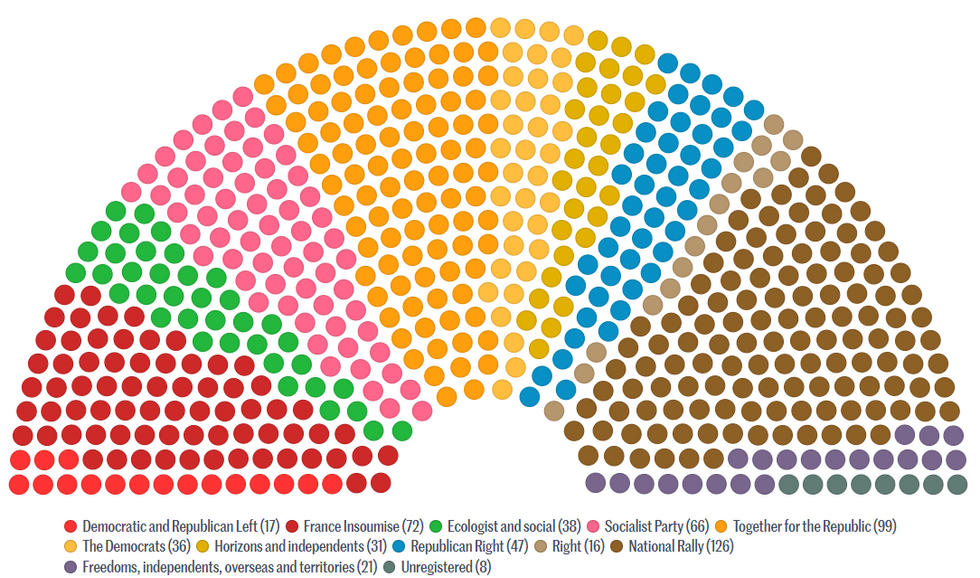-
Policy
Policy
Exclusive interviews with leading policymakers that convey the true policy message that impacts markets.
LATEST FROM POLICY: -
EM Policy
EM Policy
Exclusive interviews with leading policymakers that convey the true policy message that impacts markets.
LATEST FROM EM POLICY: -
G10 Markets
G10 Markets
Real-time insight on key fixed income and fx markets.
Launch MNI PodcastsFixed IncomeFI Markets AnalysisCentral Bank PreviewsFI PiFixed Income Technical AnalysisUS$ Credit Supply PipelineGilt Week AheadGlobal IssuanceEurozoneUKUSDeep DiveGlobal Issuance CalendarsEZ/UK Bond Auction CalendarEZ/UK T-bill Auction CalendarUS Treasury Auction CalendarPolitical RiskMNI Political Risk AnalysisMNI Political Risk - US Daily BriefMNI Political Risk - The week AheadElection Previews -
Emerging Markets
Emerging Markets
Real-time insight of emerging markets in CEMEA, Asia and LatAm region
-
Commodities
-
Credit
Credit
Real time insight of credit markets
-
Data
-
Global Macro
Global Macro
Actionable insight on monetary policy, balance sheet and inflation with focus on global issuance. Analysis on key political risk impacting the global markets.
Global MacroDM Central Bank PreviewsDM Central Bank ReviewsEM Central Bank PreviewsEM Central Bank ReviewsBalance Sheet AnalysisData AnalysisEurozone DataUK DataUS DataAPAC DataInflation InsightEmployment InsightGlobal IssuanceEurozoneUKUSDeep DiveGlobal Issuance Calendars EZ/UK Bond Auction Calendar EZ/UK T-bill Auction Calendar US Treasury Auction Calendar Global Macro Weekly -
About Us
To read the full story
Sign up now for free trial access to this content.
Why MNI
MNI is the leading provider
of intelligence and analysis on the Global Fixed Income, Foreign Exchange and Energy markets. We use an innovative combination of real-time analysis, deep fundamental research and journalism to provide unique and actionable insights for traders and investors. Our "All signal, no noise" approach drives an intelligence service that is succinct and timely, which is highly regarded by our time constrained client base.Our Head Office is in London with offices in Chicago, Washington and Beijing, as well as an on the ground presence in other major financial centres across the world.
Real-time Actionable Insight
Get the latest on Central Bank Policy and FX & FI Markets to help inform both your strategic and tactical decision-making.
Free AccessElection Of Parl't Pres Boosts Macron, But No Guarantee Of Stable Gov't
The re-election of President of the National Assembly Yaël Braun-Pivet on the evening of 18 July provides a welcome boost to President Emmanuel Macron ahead of what are likely to prove lengthy and potentially rancorous negotiations over the formation of France's next gov't. Braun-Pivet, who has held the role since 2022, won in the third round of voting, garnering the support of 220 deputies, compared to 208 for the nominee of the leftist New Popular Front (NFP), Andre Chassaigne and 141 for Sebastien Chenu of the right-wing nationalist Rassemblement National (National Rally, RN).
- Braun-Pivet won through with the backing of parties that formed the pro-Macron Ensemble alliance in the legislative election, as well as deputies from the centre-right Les Republicains (now sitting in the National Assembly as the 'Republican Right') and the regionalist LIOT.
- The 'republican front' appears to be functioning as well in parliament as it did in the legislative election. Then, it saw parties (and voters) of the centre and left coalesce against RN. In this vote it has seen centrists and conservatives united against the left. Indeed, LR deputy Annie Genevard stated after the vote that "We were not going to have a communist elected to head the National Assembly,".
- It should be noted that while Braun-Pivet's election makes it easier for Macron to appoint a PM from within the centrist group, it is no guarantee that a stable gov't can be formed by the centrists and conservatives given they do not hold a majority.
 Source: Le Monde
Source: Le Monde
To read the full story
Sign up now for free trial access to this content.
Why MNI
MNI is the leading provider
of intelligence and analysis on the Global Fixed Income, Foreign Exchange and Energy markets. We use an innovative combination of real-time analysis, deep fundamental research and journalism to provide unique and actionable insights for traders and investors. Our "All signal, no noise" approach drives an intelligence service that is succinct and timely, which is highly regarded by our time constrained client base.Our Head Office is in London with offices in Chicago, Washington and Beijing, as well as an on the ground presence in other major financial centres across the world.
